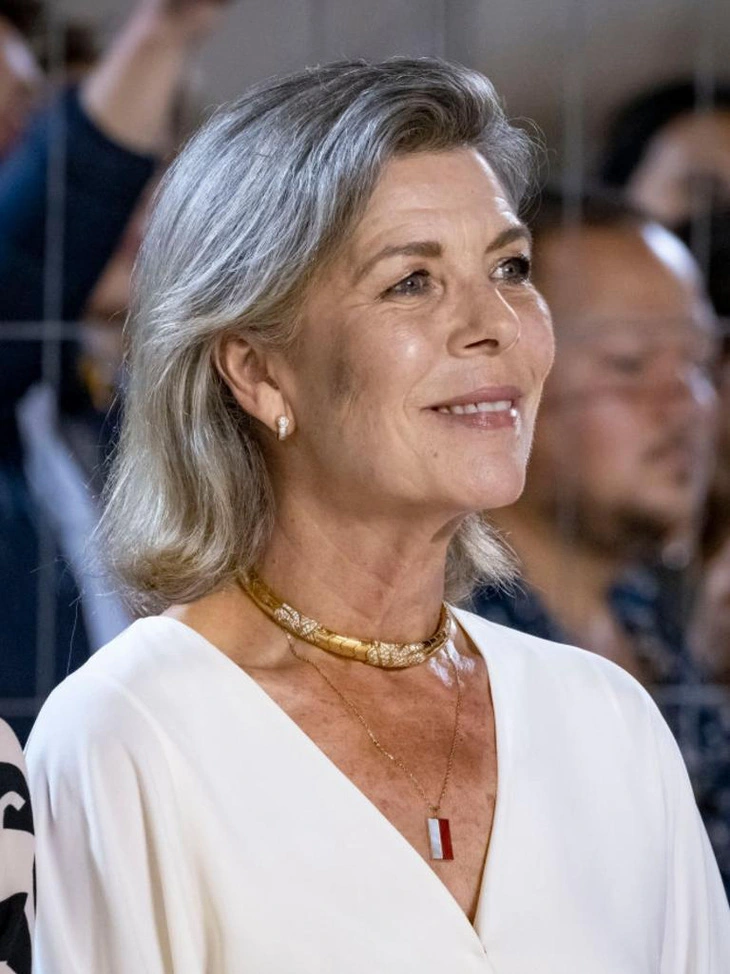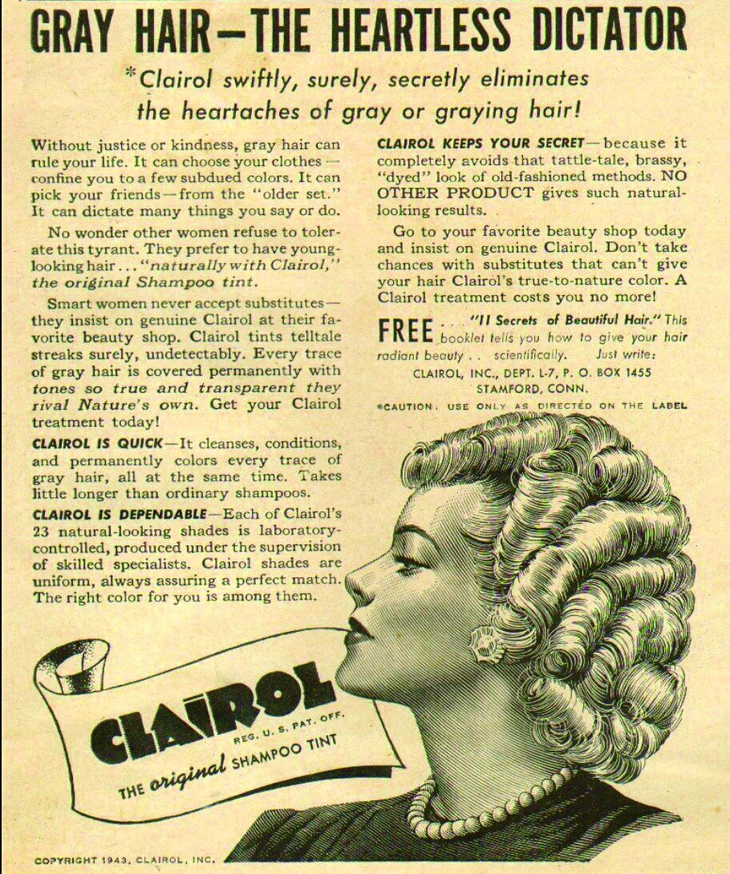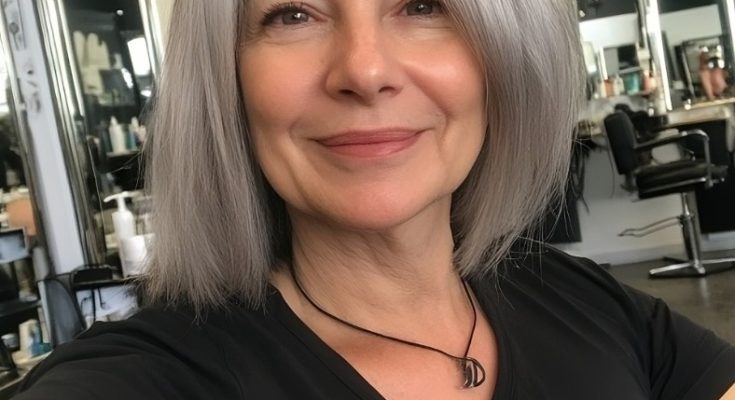It happened: my wife finally went to the salon. I’d been eagerly waiting for this moment, hoping she’d cover up her gray hair that, honestly, I found a bit embarrassing. But to my surprise, she returned with a fresh cut, the silver still shining through. I couldn’t hide my disappointment. Was it really that hard to just add a little color?
After doing some research, however, I realized how wrong I’d been. The gray hair movement is real, and it’s empowering women to embrace their natural selves. This trend is about more than just hair color; it’s a statement of self-acceptance and freedom. Let me share what I learned with other husbands out there who may have felt the same way I did. Here’s why gray hair is making a powerful comeback and why you should love and appreciate your wife just the way she is.
The Rise of the Gray Hair Movement
Gray hair is no longer something to hide. Women across the globe are letting their natural silver locks shine as a symbol of confidence and authenticity. This shift in mindset has gained momentum, with public figures and celebrities proudly showing off their gray. In 2021, at the Cannes Film Festival, actresses like Andie MacDowell, Helen Mirren, and Jodie Foster walked the red carpet with beautiful silver tresses, sending a clear message: gray is gorgeous.
The #GreyHairDontCare movement is spreading, especially on social media. Instagram accounts like @agingwith_style_and_grays and @grey_so_what celebrate this look, and the hashtag #GreyHairDontCare has been used over 500,000 times. On TikTok, #GreyHair boasts a staggering 470 million views, proving that people are embracing natural aging with style and pride. This trend is about more than just looks; it’s about breaking free from outdated beauty standards.
Gray Hair: A Symbol of Self-Acceptance
One of the most liberating aspects of the gray hair movement is that it challenges the idea that women must always look young to be beautiful. For years, society has pressured women to dye their hair to avoid showing their age. But this movement is helping women reclaim their natural beauty and say, “I’m proud of who I am.”
COVID-19 contributed to this shift in attitude. During lockdowns, when hair salons were closed, many women began to see their natural gray for the first time in years. Some tried to cover it with at-home dye, but others decided to let it grow out, realizing that it was part of their identity. As a result, gray hair went from being an “enemy” of beauty to a proud statement of self-acceptance. This simple choice represents a refusal to conform to society’s unrealistic expectations and an embrace of the real, raw self.
Famous Faces Embracing Silver Locks
It’s not just everyday people who are joining the gray hair revolution. High-profile women in entertainment, fashion, and even royalty are wearing their gray hair proudly. Take Princess Caroline of Monaco, who debuted a chic silver bob in early 2021, or Queen Letizia of Spain, who proudly shows off gray streaks. Their choices are inspiring women everywhere to feel confident with gray hair.

Media figures like these help normalize gray hair as a chic, sophisticated choice rather than something to cover up. Dove even launched a #KeepTheGrey campaign to celebrate older women’s beauty, while Wendy’s in Canada dyed its iconic red-haired mascot’s hair gray in a show of support. When prominent women take this stand, they challenge the beauty industry’s youth-centric standards and pave the way for more natural beauty acceptance.
The History of Gray Hair Stigma
Despite the recent acceptance of gray hair, the stigma around it runs deep. For decades, gray hair has been synonymous with old age, frailty, and invisibility. In fact, as recently as 2015, many women shared how their natural gray hair made people treat them as though they were “old, deaf, and clueless.” Society has long associated gray hair with a loss of vitality, often prompting women to cover it up to maintain an illusion of youth.
This pressure has a history in the beauty industry. As far back as the 1920s, brands like L’Oreal and Clairol used advertising campaigns to play on women’s insecurities. Clairol, for instance, ran ads with taglines like, “Gray Hair: The Heartless Tyrant,” suggesting that gray hair dictated every aspect of a woman’s life. These messages reinforced the idea that women should do whatever it takes to avoid showing their age. The pressure to conform was so strong that by the 1950s, more than 90% of women in Manhattan and Los Angeles were dyeing their hair regularly.

How the Gray Hair Movement Challenges Beauty Standards
Today, gray hair has gone from being a beauty faux pas to a fashionable choice. But how did this change happen? According to Caterina Gentili from the UK’s Centre for Appearance Research, the pandemic sparked a significant shift. When lockdowns forced salons to close, many women were unable to dye their hair and had no choice but to confront their natural gray. With so many people making the same choice at once, gray hair became a collective symbol of resilience, authenticity, and a rejection of superficial beauty ideals.
Stylists have noted that gray hair now represents self-assurance and individuality. It’s no longer about covering up but rather about showcasing the true self. Women are breaking free from the pressure to look perpetually young and proving that they can be dynamic, stylish, and professional regardless of hair color.
What the Gray Hair Movement Means for the Beauty Industry
The acceptance of gray hair poses a challenge to the hair dye industry, which is worth billions. For years, companies have capitalized on society’s obsession with youth to sell hair color products. According to Forbes, the global hair dye market is expected to grow from $21.4 billion to $36 billion by 2027. But with more people embracing gray hair, this market may see a shift in demand.
However, beauty brands are adapting. Dove’s #KeepTheGrey campaign is just one example of a company embracing this change. Others are exploring products that enhance natural gray hair, such as silver shampoos and conditioners that highlight and protect gray strands. As society’s definition of beauty evolves, the hair industry will likely follow suit.

Embracing Gray Hair: A New Perspective on Beauty
So, how did I go from feeling embarrassed about my wife’s gray hair to fully embracing it? Understanding this movement changed my perspective. I realized that gray hair isn’t a sign of neglect or “letting go”; it’s a mark of authenticity, resilience, and self-love. By choosing to keep her gray hair, my wife is aligning herself with countless other women who reject outdated beauty standards and celebrate who they truly are.
Her gray hair has become a reminder of her strength and confidence. Every silver strand tells a story, marking life’s milestones and experiences. She looks vibrant, authentic, and beautiful—far more than any bottle of dye could achieve. Now, when we go out together, I feel a new sense of pride. I see her not as someone who needs to cover up signs of aging but as someone embracing them with dignity and grace.
In the end, gray hair is more than just a color. It’s a statement, a choice, and a reflection of inner beauty. For any husbands out there who still feel uneasy about their wife’s decision to go gray, take a moment to appreciate what that choice truly represents. It’s a bold step toward redefining beauty, and it’s one worth celebrating.
